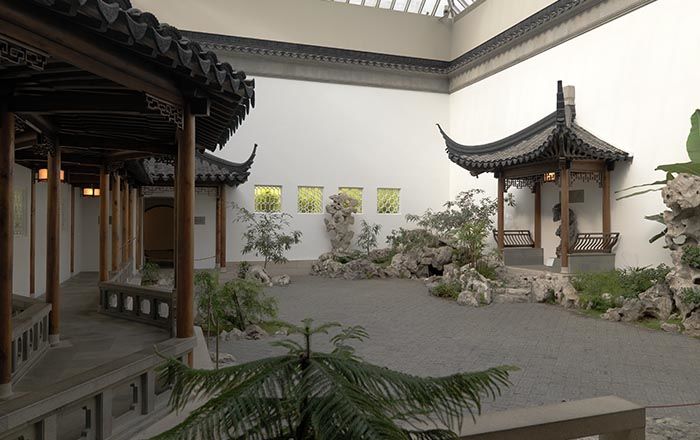Stealing the Orchid Pavilion Manuscript
Fu Xiaoshi Chinese
Not on view
Fu Xiaoshi belongs to the youngest generation represented in the Ellsworth collection—the generation that came of age during the decades of purge and Cultural Revolution. Fu Xiaoshi, as the son of Fu Baoshi had a privileged position that included training in traditional Chinese painting as well as a degree from the Central Academy of Fine Arts. While a student however, his criticism of the government earned him confinement to a labor camp, and during the Cultural Revolution he was sentenced to jail as a counter-revolutionary.
This painting belongs to the period after the mid-1970s when Fu began to paint with his left hand because of a stroke. The subject of the painting is a familiar one: Emperor Taizong (r. 627–49) was fanatical about owning all famous versions of the Lanting manuscript, a set of poems written by Wang Xhizhi (4th century) after a day-long gathering of literati. He sent his Minister Xiaoyi to retrieve a copy kept illicitly by the monk Bianzai. The minister posing as a visitor to the temple, waits with a warrant up his sleeve, ready to pounce the moment the greedy monk reveals where the manuscript is hidden. In this painting, the monk, casually flourishing his flywhisk is unable to resist boasting about his treasure. The tension and psychological acuity of Fu's painting are striking, as is the absence of the common tendency in contemporary Chinese painting toward exaggeration or caricature.
Due to rights restrictions, this image cannot be enlarged, viewed at full screen, or downloaded.
This artwork is meant to be viewed from right to left. Scroll left to view more.

